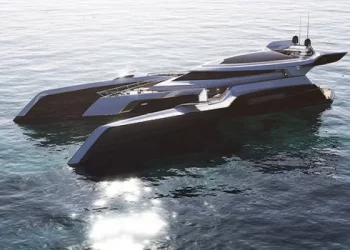New energy vehicles refers to the use of unconventional vehicle fuel as power source (or use conventional vehicle fuel, a new vehicle power unit), integrated power control and drive of the vehicle in terms of advanced technology, advanced technology principle of forming, cars, with new technology, new structure and new energy car how many?
New energy vehicles include pure electric vehicles, extended-range electric vehicles, hybrid electric vehicles, fuel cell electric vehicles, hydrogen engine vehicles, and other new energy vehicles.
Blade Electric Vehicles (BEV) is a kind of vehicle that uses a single battery as the energy storage power source. It uses the battery as the energy storage power source to provide electric energy to the motor through the battery to drive the motor to run, so as to drive the car to run.
Hybrid Electric Vehicle (HEV) refers to a vehicle whose driving system is composed of two or more single driving systems that can operate simultaneously. The driving power of the vehicle is provided by a single driving system or multiple driving systems according to the actual driving state of the vehicle.
There are many forms of hybrid electric vehicles due to different components, layout and control strategies.
Fuel Cell Electric Vehicle (FCEV) Fuel cell electric vehicle (FCEV) uses hydrogen and oxygen in the air under the action of catalyst.
The electric energy produced by the electrochemical reaction in the fuel cell is used as the main power source to drive the vehicle.
Fuel cell electric vehicles are essentially a kind of pure electric vehicles, the main difference is that the power battery works differently.
Generally speaking, the fuel cell is through electrochemical reactions convert chemical energy into electricity, electrochemical reaction required reductant with hydrogen, oxygen oxidant is used, so the earliest development of fuel cell electric vehicle is more directly using hydrogen fuel, hydrogen storage can use liquefied hydrogen, compressed hydrogen or metal hydride hydrogen storage, etc.
Hydrogen engine car Hydrogen engine car is a hydrogen engine as the power source of the car.
Normal engines use diesel or gasoline, while hydrogen engines use the gas hydrogen.
Hydrogen engine vehicle is a truly zero-emission vehicle, emitting pure water, which has no pollution, zero emissions, abundant reserves and other advantages.
Other new energy vehicles Other new energy vehicles include cars that use highly efficient energy storage devices such as supercapacitors and flywheels.
At present, new energy vehicles mainly refer to pure electric vehicles, extended-range electric vehicles, plug-in hybrid vehicles and fuel cell electric vehicles, and conventional hybrid vehicles are classified as energy-saving vehicles.
Of course, the knowledge of new energy vehicles is far more than the above, but through the phenomenon to see the essence, in fact, new energy vehicles to a certain extent is the product of consumption upgrading and government guidance, it must be the trend of future development.
But PHEVs and extended-range EVs will play an incalculable transitional role in solving immediate energy and environmental problems until the electric vehicle era really arrives.












































